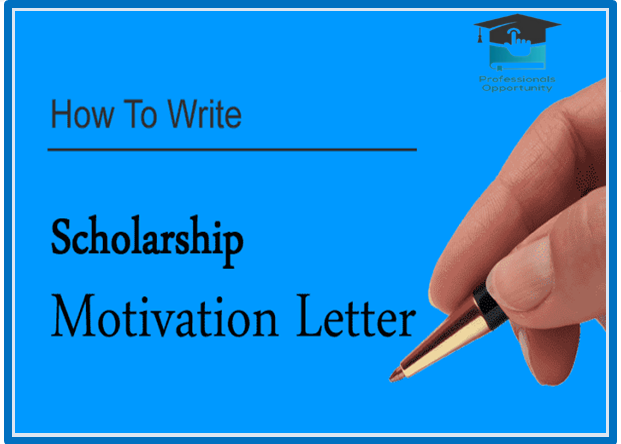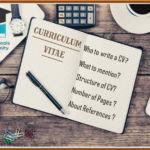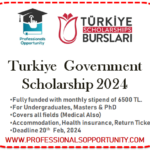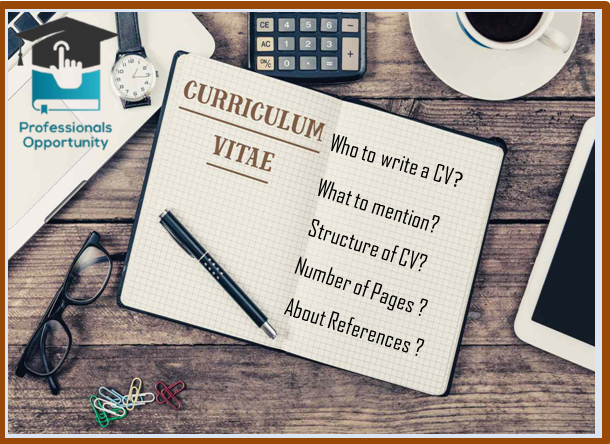
How to write a motivational letter for scholarship ?
Introduction:
“Writing a motivational letter or personal statement is one of the most crucial parts of your scholarship application. The selection committee needs to understand who you are, what drives you, and why you deserve to receive their scholarship funds over other equally capable applicants.
Your personal statement is your opportunity to share your unique story and demonstrate your motivation, purpose, and fit for the scholarship in a compelling way. While it may seem daunting, with the right approach and effort, you can craft an essay that truly inspires the readers and improves your chances of winning the scholarship award.
In this blog post, I will share some tips and strategies for writing an impactful and scholarship-winning motivational letter/personal statement. I hope you find this guidance helpful as you work on your applications. Let’s get started!
Understanding the Purpose of a Motivational Letter:
Before beginning to write, it’s important to be clear on what a motivational letter or personal statement aims to achieve. The main goals are to:
- Introduce yourself in an engaging and memorable way. Don’t just state facts – share anecdotes and details that reveal your personality and character.
- Showcase what motivates and inspires you. What is your driving purpose or passion in life? What experiences have shaped who you are and what you want to accomplish?
- Demonstrate how you will benefit from the scholarship. Why is this particular scholarship important for helping you achieve your goals? What will you gain from it?
- Convince the readers that you deserve the award over other applicants. Highlight what makes you a strong candidate – your qualifications, achievements, talents, perseverance, leadership qualities, etc.
- Connect your goals and qualifications to the scholarship criteria. Show how your aspirations align with the values and mission of the organisation offering the award.
Having a clear sense of this purpose will guide you in choosing what to include and how to craft a compelling narrative. Remember, you’re telling your unique story – not just reciting facts from your resume.
Outlining Your Story and Key Messages:
Before starting to write, take some time to brainstorm and outline the key elements and messages you want to convey. This critical preparation stage will help ensure your motivational letter has a clear focus and flows logically.
Some ideas to consider including in your outline:
- Important events, challenges or people from your background that have shaped your motivation and goals.
- Your areas of interest, strengths and talents. What are you passionate about and good at?
- Major accomplishments so far – awards, leadership roles, volunteer work, academic achievements, etc.
- Your educational and career aspirations. What do you want to study and why? What is your dream job or future impact?
- How this particular scholarship relates to and supports your goals. Why it’s important for you.
- Your character traits that demonstrate your potential like perseverance, leadership, work ethic, commitment to service, etc.
- Interesting and engaging anecdotes that bring your story to life.
- Brief conclusion that ties it all together and appeals for the chance to receive the award.
Take your time outlining to ensure you bring in just the most relevant highlights that speak to both your personal qualities and fit for the specific scholarship criteria. You can always cut out points later if needed for length.
Crafting a Memorable Introduction:
Your introduction is critical for making a strong first impression and hooking the reader into wanting to learn more about you. Avoid just stating basic facts – craft a brief yet engaging opening paragraph or two.
Some effective strategies for your introduction include:
- Opening with a vivid anecdote. Share a brief story from your past that reveals your character and motivation in an intriguing way.
- Pose an interesting question. Asking a thought-provoking question related to your goals or the scholarship can draw the reader in.
- Use impactful statistics. An interesting fact, data point or number can help introduce your topic in a memorable fashion.
- Discuss a challenge or obstacle. How did you overcome hardship or difficulties in a way that shows your strength of character?
- Set the scene. Paint a brief picture of where you grew up, your background or high school experience to provide context for your journey.
- Highlight your passion. Open by declaring your enthusiasm or dedication for your intended field of study or career in a compelling way.
Your introduction needs to make the reader want to learn more about you personally and your story. Test different opening strategies until you craft the perfect hook.
Highlighting Your Story Through Specific Examples:
While you want to cover all the key elements outlined, avoid long blocks of repetitive text. Use concrete examples, vivid details, and brief anecdotes throughout to bring your experiences to life. Readers engage more with real stories than general descriptions.
For any major accomplishments, roles, challenges or qualities you discuss, add specific examples, stories and numbers to demonstrate versus tell. Here are some tips:
- For leadership – Instead of saying “I led several organisations,” discuss spearheading a successful fundraiser that raised $5,000 for charity.
- For overcoming adversity – Rather than stating you faced difficulties, share dealing with a family illness in a humbling yet persevering manner.
- For talents – Go beyond just noting “I enjoy music,” and share learning three instruments independently over the last four years.
- For academic success – Don’t simply list awards, discuss earning the top score in the country on the AP Biology exam through diligent study habits.
Readers will remember powerful examples that bring your message to life more than vague generalisations. Your story comes across as genuine and persuasive when backed by vivid evidence.
Showing Your Fit and Thanking the Readers:
When wrapping up, you have two important goals – demonstrating how you align with the scholarship and thanking the committee for considering your application.
To show fit, highlight:
- How your goals and skills connect to the award’s criteria and mission.
- What you aim to accomplish carries meaning for the scholarship’s values and purpose.
- Any relevant experiences like leadership, community service or other activities that demonstrate your suitability.
End by thanking the committee for taking the time to read your application and consider you for the generous award. Express hope that your story resonates with them and they see your potential to make the most of the opportunity if selected.
This approach leaves the readers with a clear sense of why you deserve the scholarship while also expressing polite gratitude for their time and consideration. It rounds out your motivational letter on a compelling and respectful note.

Drafting, Editing and Polishing Your Essay:
Once you’ve outlined your key points, stories and messages, it’s time to start drafting the full essay. Give yourself sufficient time so you don’t feel rushed. Write honestly and from the heart – this is your opportunity to shine as an individual.
Even with excellent content, your motivational letter still needs careful editing and polishing to correct any errors or improve its flow and impact. Here are some final steps:
- Review each paragraph and section to ensure it adds value and moves your story forward. Remove unnecessary filler text.
- Have trusted readers proofread for clarity, content, spelling/grammar errors and provide feedback on how compelling they found different sections.
- Refine and strengthen your opening and closing paragraphs based on input. Keep editing these high impact sections.
- Ensure a consistent narrative flow that guides the reader through your journey in a logical sequence.
- Double check all facts, quotes, numbers, dates and details are accurate and correctly cited if needed.
- Review scholarship guidelines again and self-assess how thoroughly your fit and key messages shine through.
- Pay close attention to formatting per the posted instructions for font size, margins, spacing, word limit etc.
Polishing your motivational letter is time well spent to avoid silly mistakes jeopardising a standout application. Circulate it to multiple people with an eye for quality writing.
Formatting Tips to Enhance Readability:
Even with excellent content, your motivational essay can fall short if it presents as a dense block of text that’s difficult to digest. Consider these formatting suggestions:
- Use a standard readable font like Times New Roman or Arial in 11-12pt size.
- Include generous margins (at least 1 inch) and line spacing of 1.15-1.5 for good breathing room.
- Break up walls of text with attractive subheadings to guide the reader.
- Incorporate bullet points and numbered lists to make key details pop visually.
- Bold or italicise important keywords and phrases for emphasis.
- Embed relevant quotes from yourself or others with citation.
- Add relevant images, graphs or charts when fitting to your experiences.
- Ensure it’s left aligned with no unusual spacing or inconsistent formatting.
Proper layout enhances readability and makes your motivational essay appear polished from first impression. It gives the content the best chance to shine through and connect with readers.
Additional Tips for a Winning Personal Statement:
Here are a few more tips that can take your motivational letter to the next level:
- Have someone unfamiliar with you read it and assess if they feel they understand you and why you’re a strong candidate based solely on the essay. Revise until you achieve that goal.
Conclusion
In conclusion, crafting an impactful motivational letter or personal statement takes strategic planning, attention to detail and knowledge of what scholarship committees are seeking in candidates. However, with diligent preparation by outlining your story, developing engaging examples, editing thoroughly and tailoring your essay to the specific scholarship, your personal statement can give you a real competitive edge in the application process.
Remember that scholarship selection committees review hundreds of applications, so your motivational letter needs to make you truly memorable as an individual. It’s your chance to introduce your unique self and demonstrate your motivation, skills and fit for the opportunity in a manner that resonates with readers. By highlighting your character strengths, passions, goals and relevant talents through your authentic experiences, you can differentiate your application from others and significantly improve your chances of receiving an award.
While the writing process takes dedication, focussing on sharing your compelling narrative with specificity and sincerity will result in a motivational essay you can feel proud of. With an impactful personal statement as part of a strong overall application, your potential and suitability for the scholarship will shine through clearly. I wish you the best of luck in your academic endeavours and with your scholarship applications. Work hard to craft an outstanding motivational letter that helps make your dream of furthering your education a reality.
With polished motivational materials that put your full potential on display, your suitability and drive for success will ensure selection committees can envision you as an ideal recipient of their generous scholarship funds. Now is your opportunity – go tell your story and let your motivation inspire.
FAQs
How long should my motivational letter be?
The ideal length will depend on the specific scholarship’s requirements, but generally motivational letters range from 500-1000 words. Check the application guidelines and don’t go over the stated maximum word count. Concisely including all important details is better than an essay that’s too long.
What if I don’t have many extracurricular activities to include?
While extracurriculars and awards show commitment, your motivational essay is more about who you are and why you deserve the award. Focus on your character strengths like perseverance, passion for learning, or drive to help others. Give anecdotes that reveal these qualities in an engaging way. Quality trumps quantity.
How personal should I get in sharing details about myself?
You can discuss meaningful personal experiences, challenges you’ve faced and how they’ve shaped you. Just be selective about what’s most relevant and avoid oversharing private details that are too sensitive or personal in nature. Keep the focus on portraying yourself as a strong candidate.
Should I write the essay myself or get help from others?
While getting advice and feedback is helpful, the motivational letter needs to be in your own authentic voice. Relying too heavily on others to write it for you will likely result in a less genuine and compelling final product. The best approach is writing your own initial draft and then having trusted individuals help polish it.
What if I don’t have a clear career path yet?
That’s perfectly okay. Your motivational essay isn’t about having all the answers, but rather your motivation to learn, grow and make a positive impact however that may look. Share what interests you for now, your strengths, and desire to explore new opportunities through higher education. Focus on your ideals, not just aspirations alone.
How will my essay be evaluated?
Selection committees look for applicants who demonstrate strong character, motivation, potential and fit for their scholarship goals. Therefore, your essay should display these key qualities through concrete examples, heartfelt anecdotes and clear communication of how YOU specifically deserve the award. Tell your genuine story in the most engaging way possible.















Je suis vraiment ravi par cette didactique, Combien louable et réaliste pour rediger sa lettre de motivation à la Bourse.
Je suis très heureux !